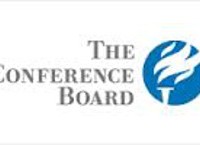Consumer confidence rose in December
Consumer confidence improved in December, following a significant improvement the previous month, according to The Conference Board.
The board’s Consumer Confidence Index® now stands at 113.7 (1985=100), up from 109.4 in November.
The Expectations Index increased sharply from 94.4 to 105.5, but the Present Situation Index decreased from 132.0 last month to 126.1.
The monthly Consumer Confidence Survey®, based on a probability-design random sample, is conducted for The Conference Board by Nielsen, a leading global provider of information and analytics around what consumers buy and watch. The cutoff date for the preliminary results was December 15.
"Consumer Confidence improved further in December, due solely to increasing Expectations which hit a 13-year high (Dec. 2003, 107.4)," said Lynn Franco, director of Economic Indicators at The Conference Board. "The post-election surge in optimism for the economy, jobs and income prospects, as well as for stock prices which reached a 13-year high, was most pronounced among older consumers. Consumers' assessment of current conditions, which declined, still suggests that economic growth continued through the final months of 2016. Looking ahead to 2017, consumers' continued optimism will depend on whether or not their expectations are realized."
Consumers' assessment of current conditions declined in December. Those saying business conditions are "good" decreased slightly from 29.7 percent to 29.2 percent, while those saying business conditions are "bad" increased from 15.2 percent to 17.3 percent.
Consumers' appraisal of the labor market was less positive than last month. Those stating jobs are "plentiful" declined from 27.8 percent to 26.9 percent, while those claiming jobs are "hard to get" increased from 21.2 percent to 22.5 percent.
Consumers' short-term outlook improved considerably in December. Those expecting business conditions to improve over the next six months increased from 16.4 percent to 23.6 percent, while those expecting business conditions to worsen declined from 9.9 percent to 8.7 percent.
Consumers' outlook for the labor market also improved markedly. The proportion expecting more jobs in the months ahead increased from 16.1 to 21.0 percent. However, those anticipating fewer jobs also increased, from 13.5 percent to 14.0 percent.
The percentage of consumers expecting their incomes to increase rose from 17.4 percent to 21.0 percent, while the proportion expecting a decrease fell moderately, from 9.2 percent to 8.6 percent.

